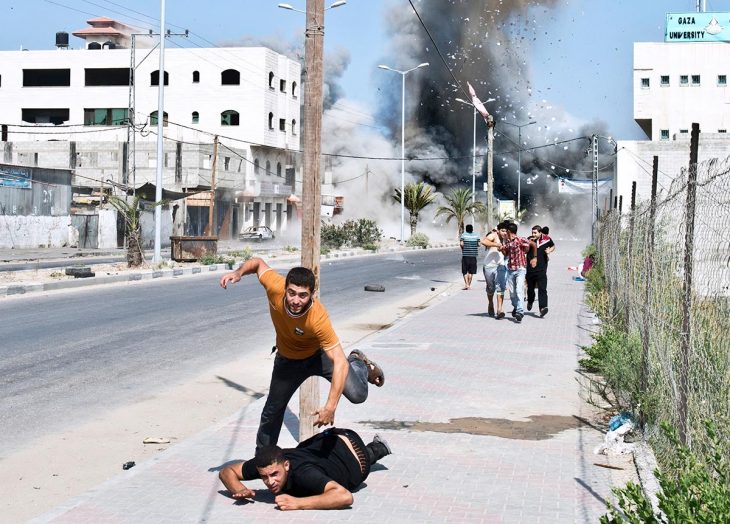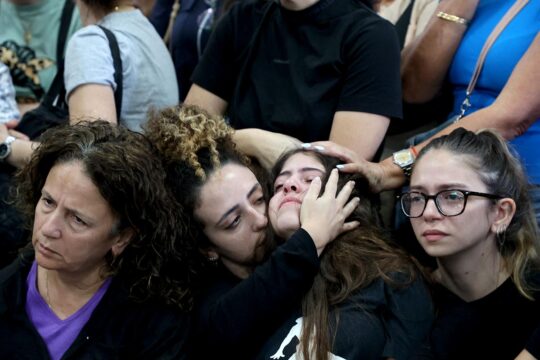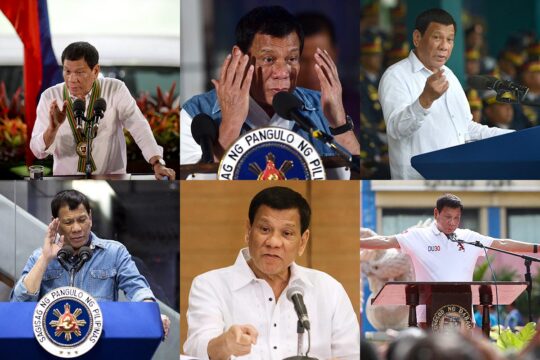On March 3, Fatou Bensouda the prosecutor of the International Criminal Court (ICC) opened an investigation into the situation in Palestine, covering crimes which may have been committed since 13 June 2014 – the date that the Palestinian authorities gave to the ICC when they asked the court to step in. These alleged crimes include acts committed by both the Israeli defence forces and by Hamas and Palestinian armed groups during 2014 and by Israeli authorities since 2014 in the occupation of the West Bank and east Jerusalem. Bensouda has effectively presented a challenge for her successor, Karim Khan, who will take the reins in June this year for a 9-year term.
Here we list the top ten obstacles that will make this investigation the most difficult the court has ever attempted.
OBSTACLE 1: EXPECTATIONS
How will the court manage the huge expectations of the human rights community, and of victims? After waiting so many years for a chance in court, it’s not surprising that Palestinians are eager. Together with her fellow victims’ representatives, Chantal Meloni, who represents victims from Gaza says that they “are careful in not raising expectations impossible to meet by the court”.
Rod Rastan, who heads the ICC’s section on preliminary examinations, echoed this sentiment at a recent seminar on prosecutorial discretion when he talked about the “risk of weighing these courts with improbable burdens, asking them to resolve or be a panacea to people and societies, and sometimes expecting too much from what is after all a criminal accountability process where…choices have to be made and people brought to trial”.
OBSTACLE 2: LEGITIMACY
As Professor Sharon Weill wrote, there is a concerted effort by Israel to de-legitimize the court’s work. Human Rights Watch Israel and Palestine director Omar Shakir says this “concerted effort by Israel advocacy groups and indeed even the Israeli government” to “go after advocacy targeting its human rights abuses” is nothing new. There is “a considerable amount of misinformation in the media aimed at discrediting the work and impartiality of the Court,” points out Amal Nassar, a legal consultant formerly with the International Federation of Human Rights (FIDH).
“We operate in very polarised contexts” acknowledged Rastan, “where different communities have very different narratives and views of what has happened, and the international community also sometimes has very polarised views.”
So far Bensouda’s main effort has been to assure a global audience of her even-handedness: “my office will take the same principled, non-partisan, approach that it has adopted in all situations over which its jurisdiction is seized”. Bensouda proclaims she will work for “both Palestinian and Israeli victims”.
But Nassar stresses that “the ICC is not a good communicator”. A recent expert review concluded that the ICC Office of the Prosecutor “does not have sufficient in-house capacity to direct the media narrative, something that is sorely needed,” she adds.
OBSTACLE 3: RESOURCES
Bensouda uses the opportunity, again, to stress “the limited resources we have available to us, and our current heavy workload”. On the same grounds, the Nigeria and Ukraine investigations have been placed on the back burner during 2021. Parsing the way the prosecutor is “already talking about prioritisation”, Meloni understands that it’s unlikely that “tomorrow” there will “start to be an active one hundred percent investigation”.
“There are a lot of states that purposefully want to limit the budget,” Rogier Bartels currently with the Netherlands Defence Academy claimed at the discretion seminar, “[in order] to make sure the office of the Prosecutor can do a certain amount of things but not too much”. Such a claim would certainly be denied by states, who instead point to the need for reform of the court: better quality before a budget increase. But the Palestine investigation brings those suspicions to the fore, and all moves will be analysed as ‘evidence’ of intention to thwart or support the investigation.
OBSTACLE 4: THE SNAIL-PACE CULTURE
“Investigations take time,” is the truism that Bensouda offered on the glacial progress that seems to characterise some ICC investigations. “We urge patience” from parties and observers, she continued. Activists though expect more: “With so many potential cases out of Palestine and so many ongoing harms, it would be hard to conceive of someone who is the chief prosecutor of the global court not prioritising moving forward on Palestine,” says victims representative Katherine Gallagher.
“People will want action at a reasonable pace” says Mark Kersten from the blog Justice in Conflict. But he likens it to walking a tightrope between the example of Georgia where there have been “no warrants after years of investigation” while “also not pushing states that support the ICC but not this investigation, too hard”.
Should Palestine in fact, be prioritised? “Some of these crimes are amongst the most well documented and also have affirmative statements by potential defendants affirming state policies that could constitute crimes against humanity or war crimes,” says Gallagher. “The situation in Palestine is not one where anyone is starting at ground zero,” she concludes. But whether that wealth of material will translate into a decision to move quickly is unlikely, when all the obstacles are enumerated.
OBSTACLE 5: THE STATEHOOD AND TERRITORY DISPUTE
Judges by a two to one majority confirmed that the prosecutor did have jurisdiction because Palestine is a member of the ICC. But they avoided actually assessing Palestine’s statehood as demanded by Germany and others with an interest in the proceedings. “The question of the ICC’s jurisdiction over the Palestinian territories has not been definitively settled yet,” writes Kai Ambos of Georg-August-Universität Göttingen in Ejil:Talk! “and will continue to occupy us over the course of these proceedings”. The judges explicitly restricted their decision to the “current stage of the proceedings” - the investigation.
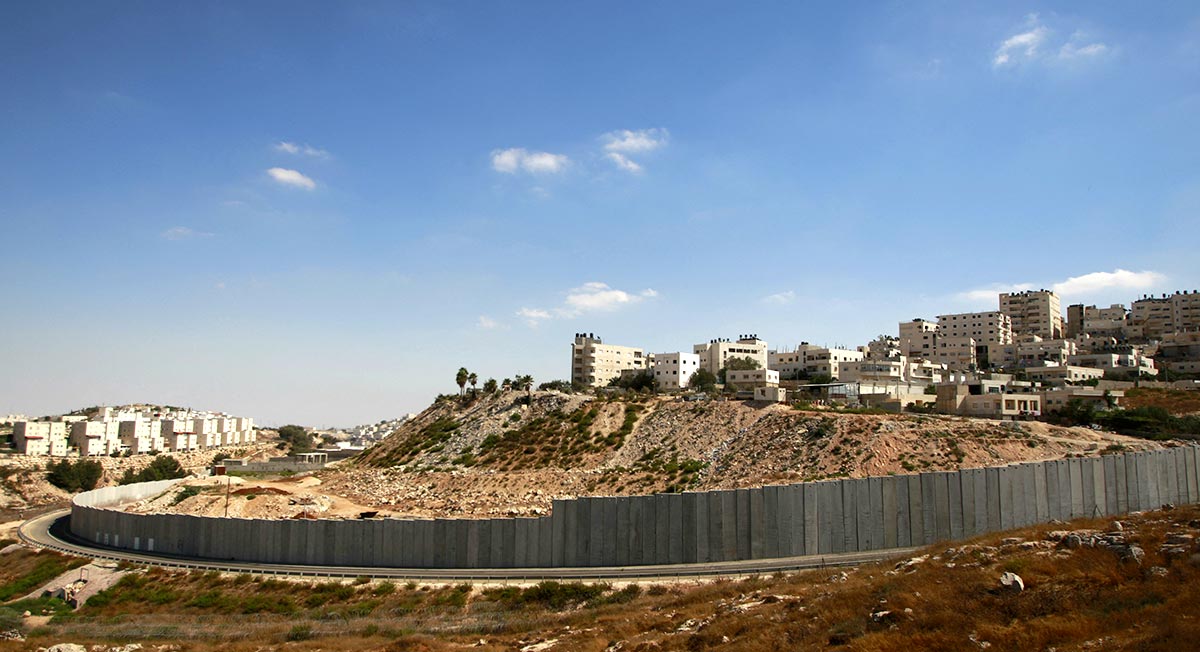
OBSTACLE 6: THE PEACE PROCESS
Bensouda says she is not adjudicating a border dispute, nor prejudging the question of any future borders between Israel and Palestine. But the work of the court – especially if it tackles the occupation of the West Bank – cannot avoid being seen in the context of bilateral or international negotiations.
Former US Ambassador for war crimes Stephen Rapp in the Obama administration applauds Bensouda’s recognition that bilateral negotiation will be needed. “I was certainly behind the scenes advocating for the ICC to stay out of this situation at the time,” says Rapp. He describes “a powerful argument for an Article 16”, although he believes it would set a dangerous precedent. Under Article 16 of the Rome Statute, a UN Security Council deferral of the investigation can be triggered under a UN Chapter VII mandate in the interests of maintaining international peace and security. This would defer the investigation for a period of one year, subject to renewal.
OBSTACLE 7: STATE COOPERATION
The Office of the Prosecutor notified all state parties involved about the investigation but cooperation from them and – maybe – even from others in the Rome Statute system will be difficult. Within 30 days, Israel could request a deferral saying that is has or is investigating the same crimes domestically. If they can successfully argue that, under the rules of complementarity, the court can back off.
Rapp recalls that during the 2008-2009 Gaza operation, he dealt with the then military advocate general Avishaï Mandelblit, who is now Israel’s attorney general. After Richard Goldstone wrote his report for the UN’s Human Rights Council, Rapp says that the US encouraged Mandelblit's office to look at every one of the incidents that the Goldstone Commission had pointed to. Some minor cases were prosecuted. When it comes to Israel handling the ICC, Rapp suggests that Israel takes the UK approach. “As we saw in the UK situation with the preliminary examination on alleged crimes by British forces in Iraq, [there were] very few prosecutions and lots of investigations not resulting in significant convictions of anybody. And the prosecutor found that that met complementarity, at least at that stage”. Meloni believes such strategy is unlikely because such a direct engagement with the court “would mean recognising” its legitimacy. Yaël Ronen of Hebrew University suggests that “the use of third parties would probably be the simplest” way to get that evidence across. Sharon Weill of Paris’ Sciences Po argues that Israel will actually cooperate unofficially. “They will certainly provide evidence for the crimes of the Palestinians. I have no doubt about this”, she adds.
Meanwhile, on the practical aspects of the investigation, Susan Power, head of legal research for Al-Haq, a Palestinian NGO, points out that “Israel controls all entry into the West Bank including East Jerusalem and the Gaza Strip, and already denies access to UN Special Rapporteurs and the UN Commissions of Inquiry”. It is hard to believe that ICC investigators would be given any access.
The prosecutor can always proceed “without effective state support,” says Rapp, pointing to previous investigations in Sudan and Libya. But these were “not very successful,” he admits. “It's hard to build a strong case, and it's particularly hard to build a case which ends up in a trial. So I think this will certainly be one of the hardest, if not the hardest [situations], in which to succeed,” he predicts.
Regarding the support the prosecutor may hope from European Union countries, Susan Power from al-Haq is blunt: “Despite the EU commitment to the rule of law and the independence and impartiality of the Prosecutor of the ICC, some States parties including Germany, Austria, Hungary, the Czech Republic,” that have publicly challenged the ICC jurisdiction over Palestine, “may refuse to fulfil their Rome Statute obligations of co-operation with the Court”.
OBSTACLE 8: AMERICAN INTERFERENCE
A recent letter signed by two thirds of congressional representatives called on the government to “defend Israel against politically motivated investigations by the International Criminal Court”. And Rapp says there is consensus against the ICC investigation across the US political establishment.
A complicating factor is the former president Donald Trump administration’s application of sanctions against the ICC prosecutor, an executive order which has still not been rescinded by US president Joe Biden. The order has a “further chilling effect” on the ground according to Power, as it “is intended to directly target investigators, lawyers, victims, witnesses, human rights defenders and also NGO funders, including those working towards the prosecution of perpetrators of war crimes and crimes against humanity in the occupied Palestinian territory, to circumvent the course of justice.”
Removing Trump’s executive order has become “complicated” says Rapp because American supporters of Israel “react in a visceral kind of way” to the very fact that the investigation is there, “even though these cases may not ever go anywhere, even though they're not winners”. And this “complicates the relationship with the court”.
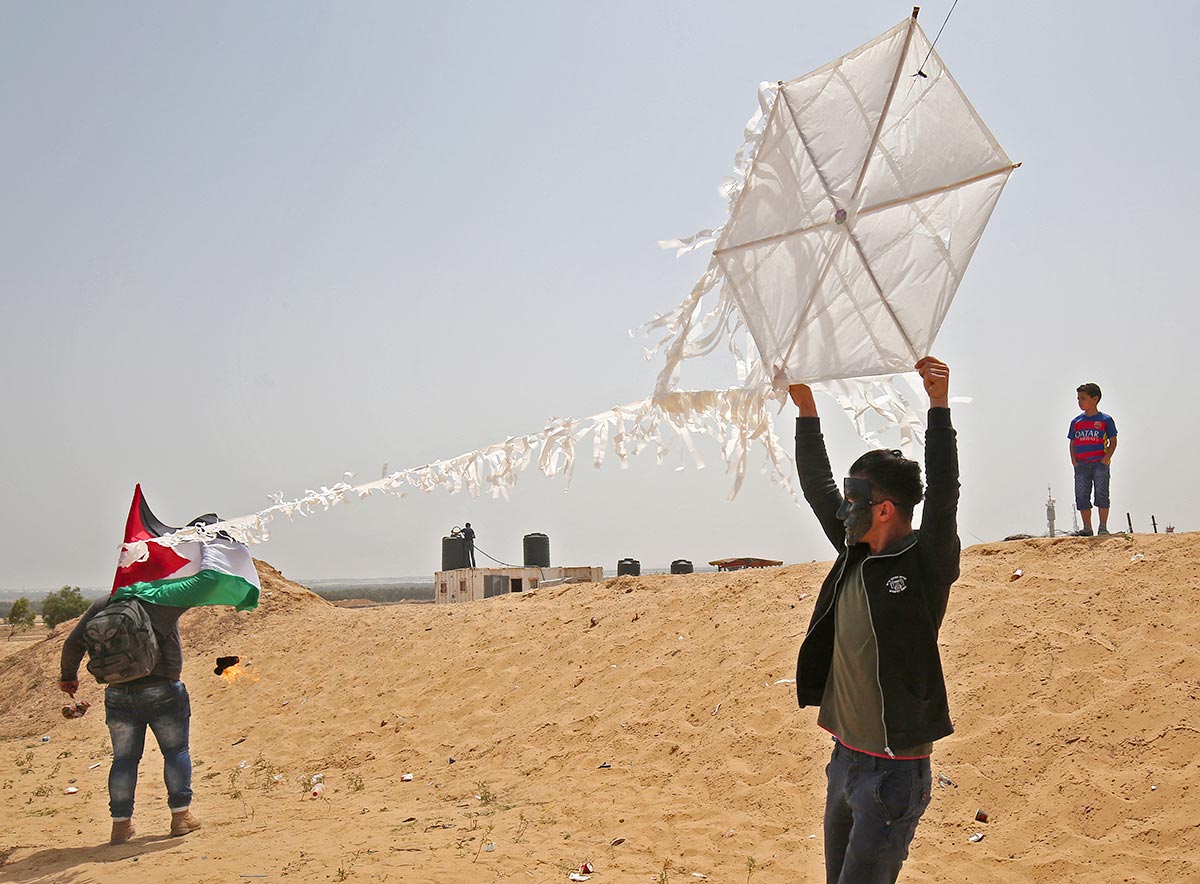
OBSTACLE 9: BACKFIRES
For many years the Office of the Prosecutor has received reams of information from human rights activists and the Palestinian authorities. But there are crimes here that involve both sides of the conflict. And for the Palestinians it may prove a double-edged sword, because crimes by the Palestinian commanders may be easier to prove than those by Israeli military.
“On the one hand, we have Hamas and Islamic Jihad or other Palestinian groups that are launching rockets and other incendiary devices like kites towards Israel with the explicit aim of targeting Israeli civilians. At the same time, we have the Israeli military using weapons against Palestinians there. The question is whether they're targeting Palestinians, combatants or fighters or whether they're also targeting civilians. And if they're targeting civilians, whether that is intentional or not. Both parties could be guilty of war crimes,” Ronen explains.
Rapp says that Israel can easily argue it uses precautions before going after specific military targets and is conforming to international humanitarian law norms. “There are some technical legal rules upon which there would be disagreement, maybe,” he says, but on that basis a criminal case would be “very difficult to make” – at least one that would succeed. He cautions that international courts have found it difficult to deal “with proportionality and distinction and these kinds of rules, when there are people shooting back, when you're engaged in a conflict”.
The potential for the ICC to put Palestinians on trial has had little attention worldwide. A Hamas spokesperson in Gaza was quoted by Reuters as welcoming the probe, declaring that “our resistance is legitimate, and it comes to defend our people. All international laws approve legitimate resistance.” But how would Palestinian authorities and population react when the ICC goes after some of their leaders?
Separate from potential crimes around the 2014 conflict are the settlements in the West Bank and east Jerusalem. This is highly politicized territory and puts Israeli political leaders also in the court’s crosshairs. Israel’s Supreme Court has “refused to discuss the legitimacy or the legality of the settlements,” says Ronen and essentially deferred to the executive. As a political project, the settlement issue is probably the most contentious the prosecutor could tackle, and the most likely to raise red flags internationally. “The settlements issue is just too political for a court,” says Rapp. “If you've got negotiations going forward on that basis, then it really seems to me the prosecutor needs to butt out of that issue completely.”
OBSTACLE 10: A NEW PROSECUTOR
In June, the plum prize that this investigation is will fall into the lap of a new prosecutor Karim Khan, who is not new to the ICC and who will have to do the hard work. Khan’s candidacy was accompanied by a whisper campaign that he might be “pragmatic” in his approach to this situation, and could choose to push other issues and be less forceful in pursuing Israel/Palestine than the many other priorities that crowd the court’s docket. Bensouda’s decision to pursue the Israel/Palestine investigation is in fact “only valid for the next few months,” suggested professor William Schabas of Leiden University at the discretion seminar. Khan “may have a different view.”
With an extensive ICC reform agenda being pushed by states, and continued pressures on the court to deliver better results, activists such as Shakir are concerned about the Office of the Prosecutor taking the smoother path: “they could interpret this as a way of just focussing on the easiest to win cases, those most likely to lead to conviction,” which a Palestine investigation may not provide.


